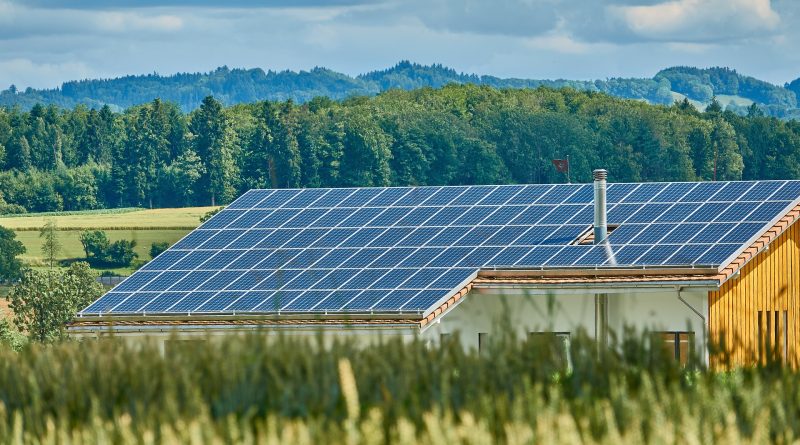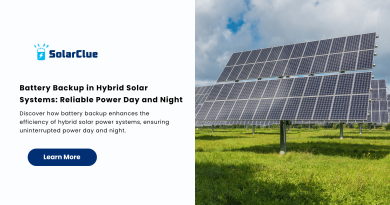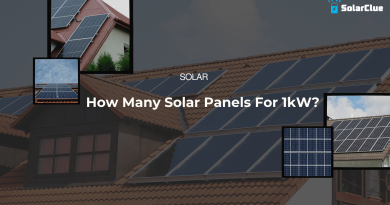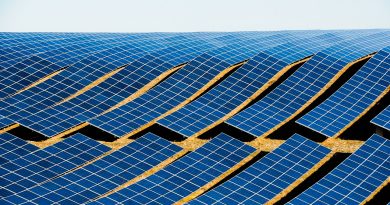Unveiling Green Alternatives for Off-Grid Power Needs
Off-grid living is becoming increasingly popular as people seek independence from traditional energy sources. While solar power is a common choice for those looking for sustainable energy solutions, there are alternative options available. In this blog, we will explore several off-grid alternatives to solar power that can help individuals and communities become self-sufficient and reduce their environmental impact.
Table of Contents
The following are the alternatives of Off-Grid Alternatives:
1. Wind Power
Harnessing the power of wind can be an excellent alternative to solar energy. Wind turbines convert wind into electricity, making it a sustainable option for off-grid living. The initial cost of installing and maintaining a wind turbine may be higher than solar panels, but wind power can generate electricity even during cloudy days or at night. It is important to conduct a thorough site assessment to ensure optimal wind conditions before investing in a wind power system.
2. Hydropower
Hydropower is another viable off-grid alternative to solar power. This method utilizes the energy of flowing or falling water to generate electricity. Micro-hydro systems can be installed in streams, rivers, or even small waterfalls, providing a consistent and reliable source of energy. Although not suitable for every location, hydropower can be an efficient and environmentally friendly choice for off-grid communities near water sources.
3. Biomass
Biomass refers to organic materials such as wood, agricultural waste, or even specially grown energy crops, which can be burned or converted into gas to produce heat or electricity. Biomass is a versatile off-grid energy solution that can be used for heating homes, cooking, or generating electricity. However, it is essential to ensure a sustainable source of biomass and use efficient conversion methods to minimize environmental impact.
4. Geothermal Energy
Geothermal energy utilizes the heat from the Earth’s core for heating and electricity generation. By tapping into natural geothermal reservoirs, this off-grid alternative provides a constant and reliable energy source. Geothermal systems require specialized equipment and expertise for installation, and they may not be suitable for all locations. However, areas with access to geothermal resources can benefit greatly from this sustainable energy solution.
5. Microgrids
Microgrids are self-contained energy systems that can operate independently or in conjunction with a larger power grid. By combining different renewable energy sources such as wind, solar, hydro, or biomass, microgrids can provide reliable off-grid energy solutions. These systems often incorporate energy storage technologies such as batteries or flywheels to ensure a constant power supply, even during periods of low energy production.
6. Fuel Cells
Fuel cells are devices that chemically convert hydrogen or other fuels into electricity, with water as the only byproduct. Fuel cells can be an efficient off-grid alternative to solar power, particularly in areas with limited space or resources. They require a constant fuel supply, usually hydrogen gas, but they offer a continuous and reliable source of electricity. Fuel cells have gained popularity in off-grid applications, such as remote cabins or telecommunications towers.
Conclusion
While solar power remains a popular choice for off-grid energy solutions, there are several viable alternatives available. Wind power, hydropower, biomass, geothermal energy, microgrids, and fuel cells offer sustainable options for those seeking independence from traditional energy sources. Each alternative has its own advantages and considerations, so it is crucial to assess the specific needs and available resources before making a decision. By exploring these off-grid alternatives, individuals and communities can reduce their reliance on fossil fuels and contribute to a more sustainable future.
Embrace a sustainable future with Off-Grid Power Alternatives! Contact SolarClue® today for expert advice and tailored solutions. Take the first step towards energy independence and environmental stewardship.
Frequently Asked Questions
Wind turbines, hydroelectric systems, and biomass generators are viable alternatives.
Wind turbines convert wind energy into electricity, providing a consistent power supply.
Yes, they harness the power of flowing water to generate electricity, offering a reliable option.
Biomass involves converting organic materials into energy, often through combustion or biofuel production.
Yes, a hybrid approach integrating multiple sources can enhance reliability and energy output.
Check local regulations, as some regions offer incentives for sustainable energy solutions.
Off-grid alternatives reduce reliance on traditional power sources, lowering carbon footprints.
Different alternatives may be more suitable depending on the climate, so consider local conditions.
Absolutely, these alternatives are scalable and can meet the energy needs of various applications.
Consult with experts to assess your energy requirements and determine the most suitable solution.




